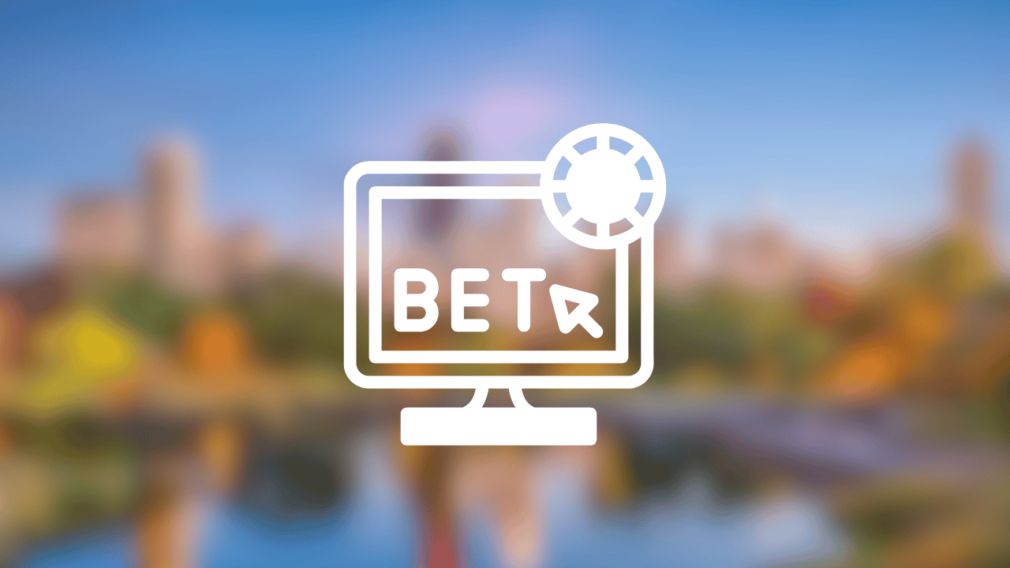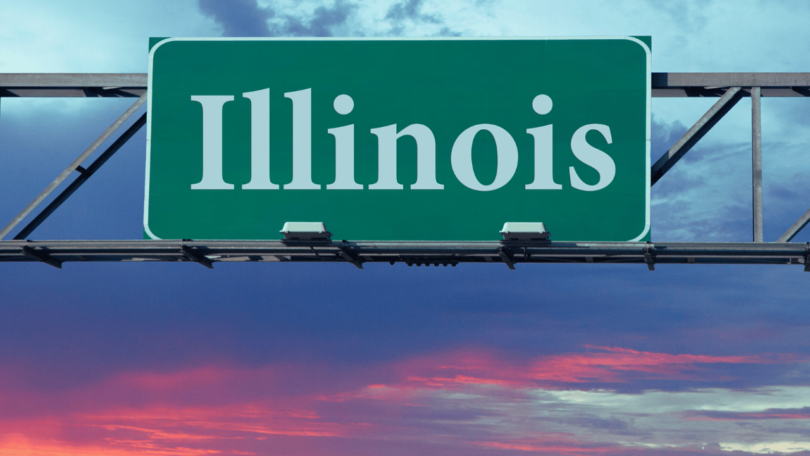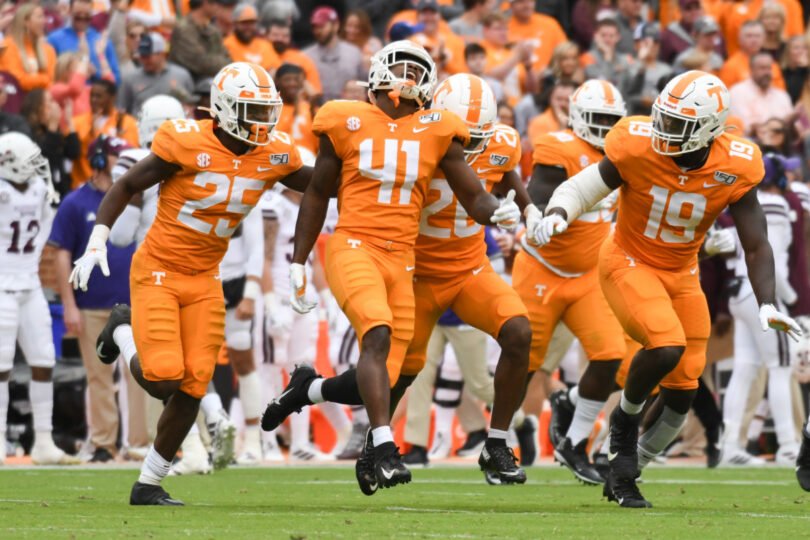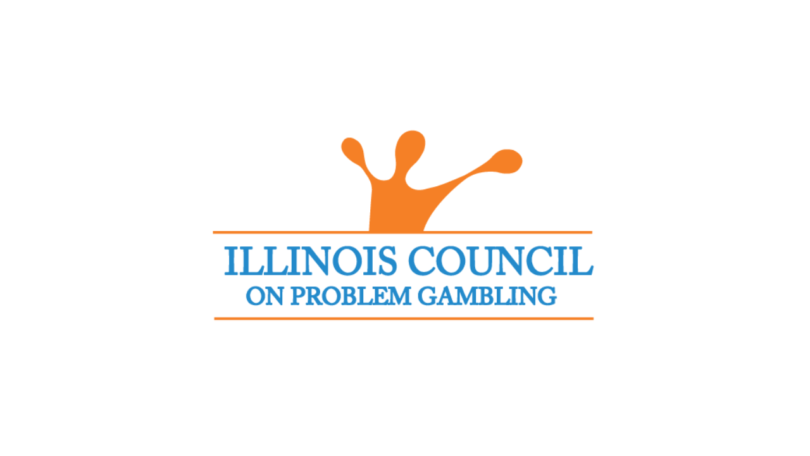Is Sports Betting Legal in Illinois? Everything You Neet to Know
Yes, sports betting is 100% legal in Illinois! Since its legalization in June 2019, when Governor J.B. Pritzker signed Senate Bill 690 into law, Illinois has become one of the most active states for sports betting in the U.S.

Legalization and History of Sports Betting in Illinois
The road to legal sports betting in Illinois was anything but quick, but it’s a journey that set the stage for one of the most dynamic markets in the U.S. Let’s break down how it all unfolded and why Illinois embraced this growing industry.
The Legalization Process
Sports betting became legal in Illinois on June 28, 2019, when Governor J.B. Pritzker signed the Sports Wagering Act (SB 690) into law. This legislation was part of a larger capital investment plan designed to boost the state’s economy and improve infrastructure.
The first official wagers were placed on March 9, 2020, at Rivers Casino Des Plaines, marking a historic moment for Illinois bettors. Online sports betting followed a few months later, with the first platforms launching on June 18, 2020, providing a convenient way for residents to get in on the action.
Why Illinois Legalized Sports Betting?
Illinois had several key motivations for legalizing sports betting. Generating revenue was one of them. The government aimed to use tax proceeds from sports betting to fund public initiatives such as infrastructure projects and education.
The other crucial objective was to eliminate the black market. By providing a regulated and legal alternative, Illinois sought to curb illegal sports betting and redirect money from underground operators into legitimate, taxable channels.
Ultimately, legalizing sports betting in Illinois was all about seizing the opportunity. Following the U.S. Supreme Court’s 2018 decision to overturn the federal ban on sports betting, Illinois legislators saw an opportunity to establish the state as a leader in this lucrative industry.
Key Features of Illinois’ Sports Wagering Act
The Sports Wagering Act established rules that support growth while protecting players:
- Betting Options: Both retail sportsbooks and online betting platforms became legal, offering flexibility.
- Licenses: The state granted licenses to casinos, racetracks, off-track betting venues, and professional sports arenas.
- Online Access: While in-person registration was initially required, this rule changed in March 2022, making sign-ups fully online.
- Tax Rates: Illinois imposed a 15% tax on sportsbook revenue (with later emerged plans to increase rates to 20%-40% by 2024 based on earnings).
- College Betting Restrictions: Restrictions initially applied to wagers on in-state college teams, but these were later eased.
- Official Data Usage: Operators must use official league data for live betting, ensuring accuracy and integrity.
Since its launch, Illinois’ sports betting market has grown rapidly, achieving record-breaking revenues. This success points out the careful planning and strategic decisions that went into creating a market that benefits both the state and its residents.
Regulatory Framework for Sports Betting in Illinois
Illinois’ sports betting industry operates under a robust regulatory framework designed to ensure transparency, fairness, and player protection. At the heart of this system is the Illinois Gaming Board (IGB), the primary authority overseeing all aspects of the state’s gambling operations, including sports betting.

The Role of the Illinois Gaming Board
The Illinois Gaming Board plays a central role in maintaining the integrity of sports betting in the state. Its responsibilities include:
- Licensing Operators: IGB issues licenses to both retail and online sportsbooks. Operators must meet strict criteria to ensure compliance with state laws and industry standards.
- Monitoring Activity: The board oversees sportsbooks to guarantee fair practices, safeguard players, and enforce rules on responsible gambling.
- Approving Bets: IGB determines which types of wagers are permissible and has the authority to ban bets that could compromise the integrity of sports.
- Handling Complaints: Players experiencing issues with licensed operators can file complaints with IGB, which works to resolve disputes and protect consumer interests.
The IGB also maintains a public list of licensed operators on its website, allowing bettors to verify the legitimacy of a sportsbook before placing their wagers.
Licensing Requirements and Structure
Illinois has established one of the most comprehensive licensing systems in the country, aimed at fostering a competitive yet controlled market:
- Eligibility: Licenses are available to casinos, racetracks, and sports venues. Online operators must partner with one of these physical entities to operate in Illinois.
- Standalone Online Licenses: Illinois also offers three licenses specifically for online-only operators. These are available 18 months after the market’s launch to encourage local partnerships initially.
- Fees: Licensing fees are among the highest in the U.S., ranging from $3 million to $20 million. Sports venues pay $10 million, while online-only operators face a $20 million fee.
- License Duration: Licenses are granted for a fixed period.
- Background Checks: Applicants undergo rigorous scrutiny to ensure they are suitable to operate in the state’s highly regulated market.
Transparency and fairness are central to Illinois’ approach to sports betting. Licensed operators must comply with strict standards to promote responsible gambling and prevent fraudulent practices. By maintaining rigorous oversight, the Illinois Gaming Board ensures a safe and secure environment for all players.
Recent Developments in Illinois Sports Betting
- [September 2, 2025]: bet365 Introduces Hybrid Fee Structure in Illinois, Targeting Small Wagers
- [August 27, 2025]: Caesars Sportsbook Adds $0.25 Fee per Online Bet in Illinois, Citing New State Tax
- [August 20, 2025]: Illinois Hits Record £113.9 Million in June Sports Betting Revenue
- [August 5, 2025]: Illinois Cracks Down on Gambling Ads, Imposes Full Ban on College Campuses
- [August 1, 2025]: BetRivers Sets $1 Minimum Bet in Illinois, Undercutting Rivals’ Response to New Tax
Where to Bet on Sports in Illinois
Illinois provides a wide range of options for sports betting, combining the excitement of in-person sportsbooks with the convenience of online platforms.
Retail Sportsbooks
Retail sportsbooks in Illinois can be found at casinos, racetracks, and select sports venues. These locations deliver a lively atmosphere where bettors can place their wagers, watch games on big screens, and enjoy additional amenities like food and drinks.
Popular retail locations include:
- Rivers Casino (Des Plaines) – The first venue to accept legal sports bets in Illinois.
- Argosy Casino (Alton) – Among the state’s pioneers in sports betting.
- Grand Victoria Casino (Elgin) – Home to Caesars Sportsbook.
- Hollywood Casinos (Aurora and Joliet) – Offering sports betting via ESPN BET.
- DraftKings at Casino Queen (East St. Louis) – A flagship sportsbook for the DraftKings brand.
- Hawthorne Race Course and Fairmount Park – Blending horse racing with sportsbook facilities.

These venues offer a premium experience for those who enjoy the social and interactive aspect of in-person betting.
Online Sports Betting
Online sportsbooks dominate Illinois’ sports betting market, giving residents access to an extensive range of betting options from anywhere in the state. With fully online registration now available, bettors can quickly sign up and start wagering without ever leaving home.
Active online operators in Illinois include:
- DraftKings Sportsbook
- FanDuel Sportsbook
- BetRivers
- Caesars Sportsbook
- BetMGM
- Hard Rock Bet
- Fanatics Sportsbook
- ESPN BET
- Circa Sports
Each platform offers unique features, such as user-friendly interfaces, competitive odds, and enticing promotions. Many apps are available for both iOS and Android devices.
Illinois has built a sports betting market that caters to every type of bettor. Retail sportsbooks deliver an immersive, game-day experience, while online platforms offer convenience and flexibility. With some of the industry’s top operators licensed in the state, Illinois continues to lead the way in providing safe and enjoyable sports betting opportunities.
Betting Options and Restrictions in Illinois
Illinois offers a broad spectrum of betting options, catering to fans of all major sports and wager types. However, it also enforces clear restrictions to ensure fairness, integrity, and responsible gambling. Here’s what bettors should know:
What You Can Bet On
Illinois sportsbooks cover an impressive range of sports and events, ensuring there’s something for everyone:
- Professional Sports: Bet on popular U.S. leagues like the NFL, NBA, MLB, NHL, MLS, and WNBA.
- College Sports: While bets on college games outside Illinois are allowed online, wagers involving in-state teams like the University of Illinois are restricted to retail locations.
- International Sports: Options include global soccer leagues, Formula 1, UFC, and other international events.
- Niche Sports: Bettors can also explore markets like cricket, rugby, darts, and table tennis.

Types of Bets
Illinois sportsbooks provide a variety of wagering options to suit both novice and seasoned bettors:
- Moneyline: A simple bet on which team or player will win.
- Point Spread: Wager on a team to win or lose by a specific margin of points.
- Over/Under (Totals): Predict whether the total points scored will be above or below a set number.
- Parlays: Combine multiple bets for a higher payout, though all selections must win.
- Futures: Place bets on long-term outcomes, such as championship winners.
- Prop Bets: Focus on specific events within a game, like the first team to score.
- Live Betting: Make wagers as the action unfolds in real-time.
Restrictions to Be Aware Of
While Illinois provides diverse betting opportunities, it enforces specific limitations to safeguard integrity and protect players:
- College Sports Restrictions: Bets on in-state college teams can only be placed at retail sportsbooks and are limited to basic outcomes like game winners. Player-specific or in-game prop bets are prohibited.
- No High School Sports: Wagers on youth sports or events below the collegiate level are strictly banned.
- Non-Sporting Events: Betting on elections, award shows, or esports is not permitted.
- Geolocation Rules: Online bets are only allowed when the bettor is physically located within Illinois. Sportsbooks use geolocation technology to verify this.
- Age Requirement: Players must be at least 21 years old to place a wager.
By combining a vast selection of betting options with thoughtful restrictions, Illinois maintains a balanced, player-friendly environment for sports wagering.
Taxation and Revenue Allocation in Illinois
Illinois employs a progressive tax system for sports betting, ensuring that the state maximizes revenue while accommodating operators of different sizes. This balanced approach has positioned Illinois as both a competitive market and a significant contributor to public funds.
How Sportsbooks Are Taxed
In 2024, Illinois transitioned to a progressive tax structure, replacing the previous flat 15% rate. Under this system, operators pay taxes based on their Adjusted Gross Revenue (AGR):
- Up to $30 million AGR: Taxed at 20%.
- $30 million to $50 million AGR: Taxed at 25%.
- $50 million to $100 million AGR: Taxed at 30%.
- $100 million to $200 million AGR: Taxed at 35%.
- Over $200 million AGR: Taxed at 40%, one of the highest rates in the U.S.
This tiered system ensures that larger operators contribute more, reflecting their significant share of the market while smaller operators retain room to grow.
Where the Revenue Goes
Illinois directs its sports betting revenue toward initiatives that directly benefit its residents and communities:
- Rebuild Illinois Fund: A significant portion supports infrastructure projects, including road repairs, bridge upgrades, and affordable housing developments.
- Education and Community Programs: Funds are allocated to improve schools and community facilities, ensuring long-term benefits for residents.
- Law Enforcement Support: Operators in counties with populations exceeding three million contribute an additional 2% tax, which funds public safety and law enforcement efforts in those areas.
Taxation on Player Winnings
Beyond taxing operators, Illinois also imposes taxes on player winnings:
- Winnings Above $600: These are subject to Illinois state income tax, which players report during tax season.
- Federal Withholdings: For larger payouts, casinos and sportsbooks deduct 25% for federal taxes at the time of withdrawal.
Illinois is one of the most expensive states for operators, with licensing fees ranging from $3 million to $20 million, depending on the type of license and projected revenue.
Market Performance and Economic Impact
Illinois has quickly become one of the leaders in the sports betting industry, consistently breaking records and driving economic benefits. In November 2024, the state hit a new milestone with an all-time-high monthly handle of $1.53 billion, generating $137.2 million in revenue.
In 2024, Illinois has reported a handle of $7.36 billion, bringing in $658.8 million in revenue. Out of this, $112.4 million has been collected in state taxes, demonstrating how sports betting is contributing directly to public funds. The market’s upward trajectory continued from 2023, where Illinois posted a total handle of $12.44 billion, generating $1.12 billion in revenue and $161 million in tax revenue for the state.
Notably, Illinois has maintained a trend of hitting over $1 billion in handle nearly every month of 2023, with November alone reaching $1.4 billion.
Responsible Gambling Initiatives in Illinois
Ensuring a safe and responsible gambling environment is a top priority in Illinois’ sports betting industry. Both state regulators and licensed operators work together to promote responsible play and provide support for individuals at risk of gambling addiction.

Illinois Gaming Board (IGB) Initiatives
The Illinois Gaming Board (IGB) plays a key role in regulating responsible gambling practices. Its initiatives are designed to protect players and encourage healthy gaming habits:
- Self-Exclusion Program (SEP):
- Allows individuals to voluntarily exclude themselves from all licensed gambling activities, including online platforms and retail sportsbooks.
- Enrollment is available at casinos, racetracks, and select locations, even in neighboring states.
- Player Management Tools:
- Operators must offer features like deposit limits, wagering caps, and session time restrictions.
- Bettors can set reminders to track the time they spend on betting apps or choose to take temporary breaks from wagering.
- Advertising Restrictions:
- IGB enforces strict rules to prevent misleading promotions and protect vulnerable groups, such as minors and those recovering from gambling issues.
Support from Licensed Operators
Licensed sportsbooks in Illinois actively contribute to promoting responsible gambling:
- Educational Campaigns: Operators provide resources that highlight the risks of problem gambling and how to stay in control.
- Transparency: They maintain clear terms in their marketing and ensure players have access to tools for managing their habits.
- Partnerships: Many sportsbooks collaborate with organizations like the Illinois Council on Problem Gambling (ICPG) and the National Council on Problem Gambling (NCPG) to fund support services.
Resources for Players
Illinois residents have access to a wide range of support services:
- Hotlines:
- 1-800-GAMBLER is a 24/7 confidential helpline for those in need of assistance.
- Text services like GAMB to 833234 provide instant support.
- Support Groups:
- Organizations like Gamblers Anonymous host meetings across the state to help individuals and families affected by gambling addiction.
- Online Tools:
- Dedicated websites offer self-assessment tests and resources for understanding gambling risks.
- The state’s official portal includes links to treatment programs and recovery options.
This multi-faceted approach ensures that players can enjoy betting safely while knowing support is readily available if needed.
Comparison with Neighboring States
Illinois stands out as one of the most prominent states for sports betting in the U.S., and a closer look at its neighbors reveals both its strengths and unique features. While states like Indiana, Iowa, and Kentucky have also embraced legal sports betting, Illinois maintains a competitive edge in several key areas.
How Illinois Stacks Up Against Nearby States
Tax Rates:
Illinois recently adopted a progressive tax structure for sports betting operators, with rates reaching up to 40% for the highest earners. This is significantly higher than the flat rates in Indiana (15%), Kentucky (15%), and Iowa (6.75%). While this generates more revenue for Illinois, it may limit promotional offers for players.
Online Registration:
Since March 2022, Illinois has allowed online registration for sportsbooks, eliminating the previous requirement to register in person. This aligns it with neighbors like Indiana, Iowa, and Kentucky, all of which offer online sign-ups, making sports betting more accessible to residents.
Operator Availability:
Illinois hosts nine licensed online sportsbooks, slightly fewer than Indiana (11) and Iowa (19), but more than Kentucky (8). Despite the lower number, Illinois’ operators generate significantly higher revenue and handle due to the state’s large population and robust sports culture.
Market Performance:
Illinois consistently ranks among the top states in terms of handle and revenue. In 2023, Illinois generated a staggering $11.6 billion in handle and over $794 million in revenue. In comparison, Indiana saw $4.33 billion in handle, and Iowa recorded $2.42 billion, showcasing Illinois’ dominance in the region.
College Betting Restrictions:
Illinois places restrictions on betting for local college teams, allowing wagers only at retail locations and limiting bet types to final outcomes. Indiana and Iowa have fewer restrictions, allowing online wagers on college teams without similar limitations.
Unique Advantages of Illinois
Illinois offers several standout features that set it apart from its neighbors and other states:
Integration with Sports Venues:
Illinois is one of the few states where bettors can place wagers directly at sports venues, such as FanDuel’s retail sportsbook at United Center in Chicago. This creates a unique and immersive experience for fans attending games.
Regulatory Progressiveness:
The state has shown adaptability by introducing measures like:
- Removing in-person registration requirements.
- Expanding online betting options.
- Implementing a tiered tax structure to maximize state revenue.
Broad Betting Options:
Illinois players enjoy access to a wide variety of bets, including live betting and unique prop bets, catering to both casual bettors and seasoned gamblers.
Infrastructure and Accessibility:
With numerous casinos, racetracks, and retail sportsbooks spread across the state, Illinois offers a diverse range of betting experiences. Coupled with a strong online presence, players can choose the option that suits them best.
FAQs About Sports Betting in Illinois

Is sports betting legal in Illinois?
Yes, sports betting is fully legal in Illinois. The state legalized it in June 2019 through the Sports Wagering Act (SB 690), and the first retail sportsbooks launched in March 2020. Online betting followed in June 2020.
How old do I need to be to bet on sports in Illinois?
You must be at least 21 years old to place a sports bet in Illinois, whether online or at a retail sportsbook.
Can I bet on Illinois college teams?
Yes, but with restrictions. You can only place bets on Illinois college teams at retail sportsbooks, and the wagers are limited to final outcomes. Player props or in-game bets for Illinois college teams are not allowed.
Are there online sportsbooks available in Illinois?
Absolutely. Illinois has nine licensed online sportsbooks, including BetMGM, Caesars Sportsbook, FanDuel, DraftKings, and more. Registration is completely online and does not require visiting a retail location.
How are sports betting revenues used in Illinois?
Revenue from sports betting taxes supports the state’s Rebuild Illinois Fund, which finances infrastructure projects like roads, bridges, and schools. A portion also goes to law enforcement and other public services.
What taxes apply to sports betting winnings in Illinois?
Winnings over $600 are subject to both federal and state taxes. Illinois residents are taxed 4.95% on gambling winnings, in addition to a 25% federal withholding tax for larger payouts.
Can I self-exclude from sports betting if I think I have a problem?
Yes. Illinois offers a self-exclusion program through the Illinois Gaming Board (IGB). This program blocks access to all licensed sportsbooks and casinos in the state. Players can also set spending limits or take breaks using tools provided by operators.
Recommended
